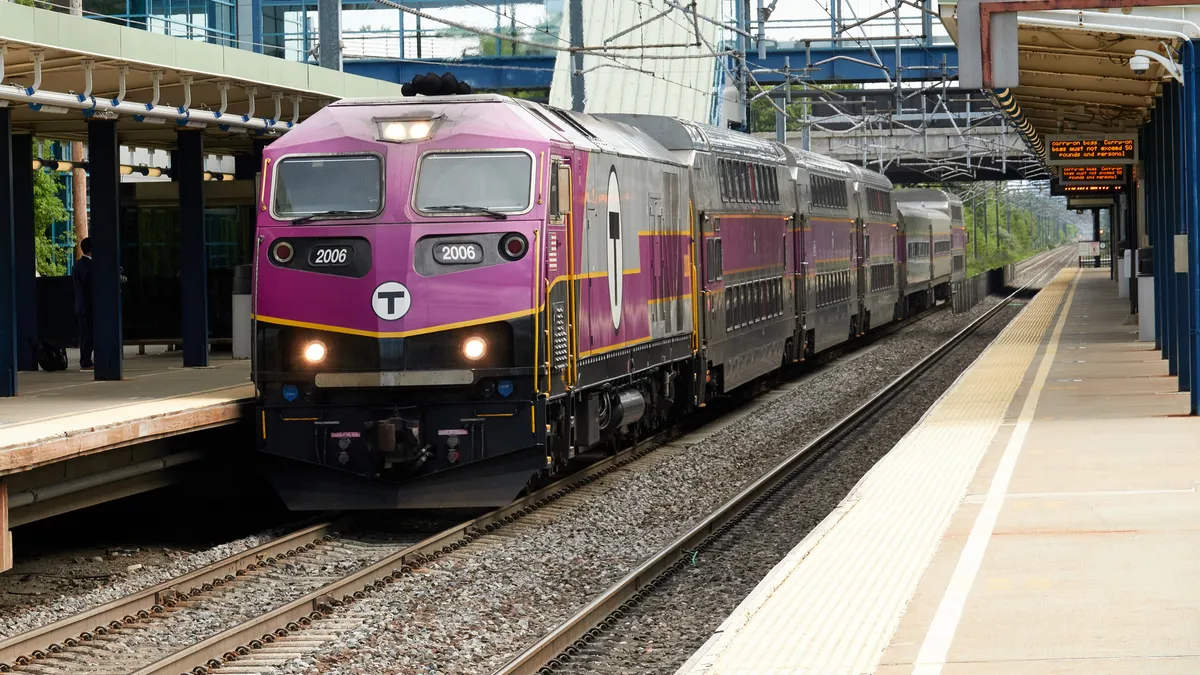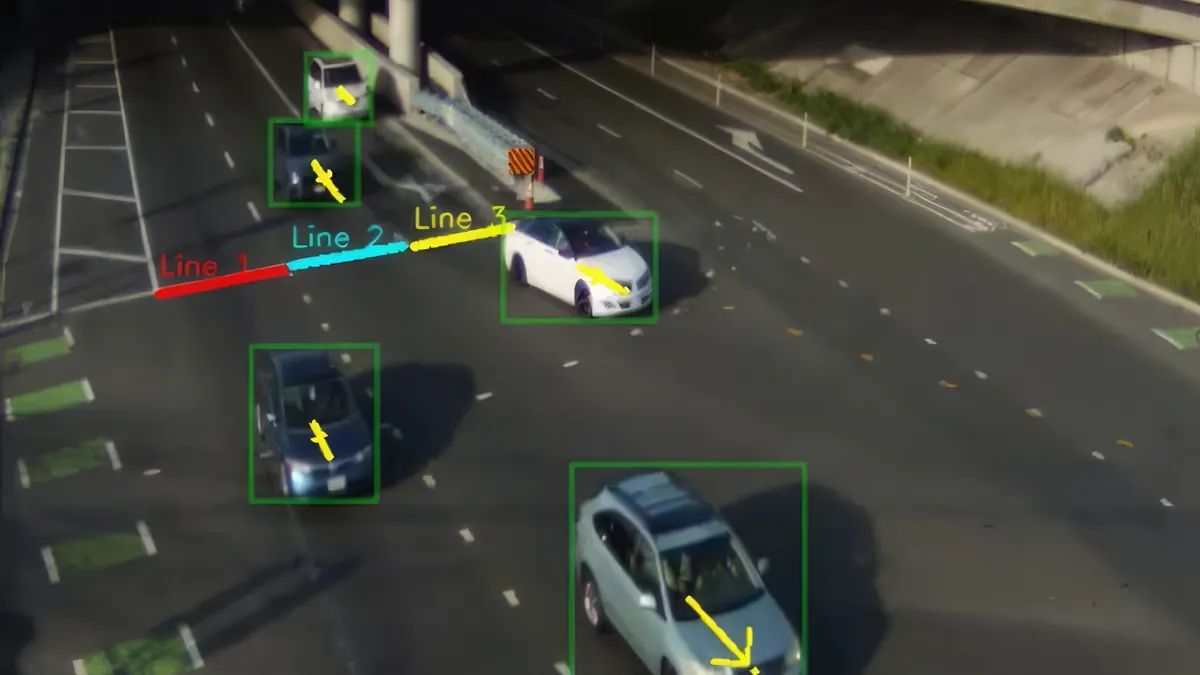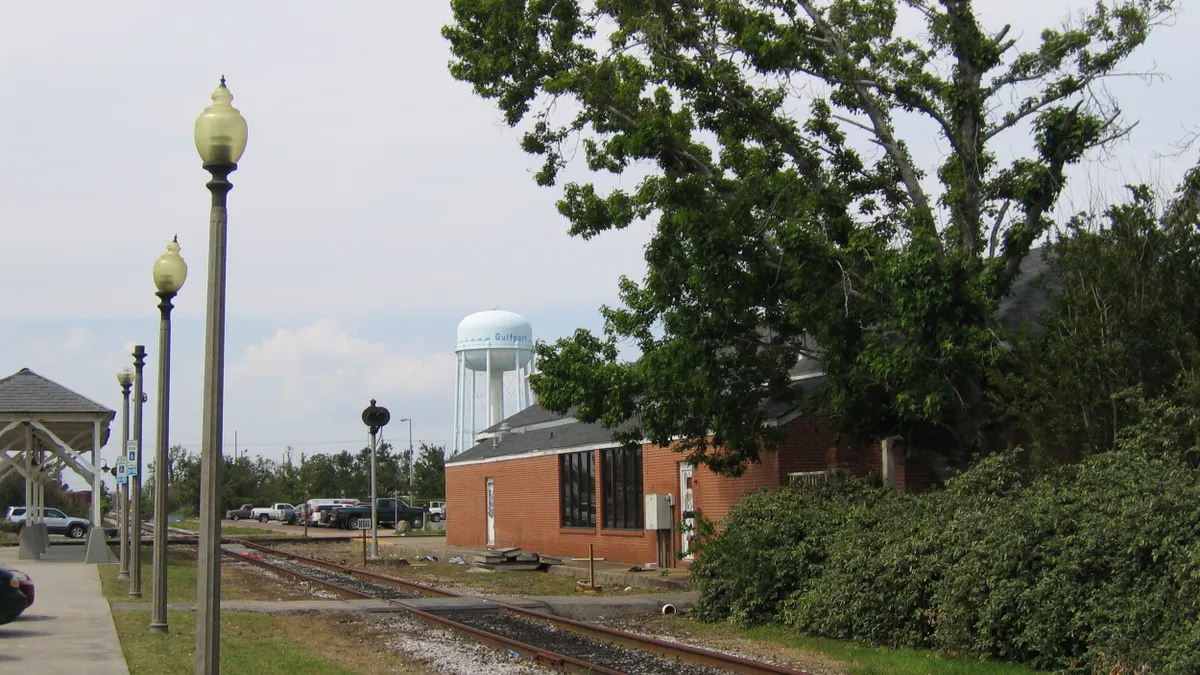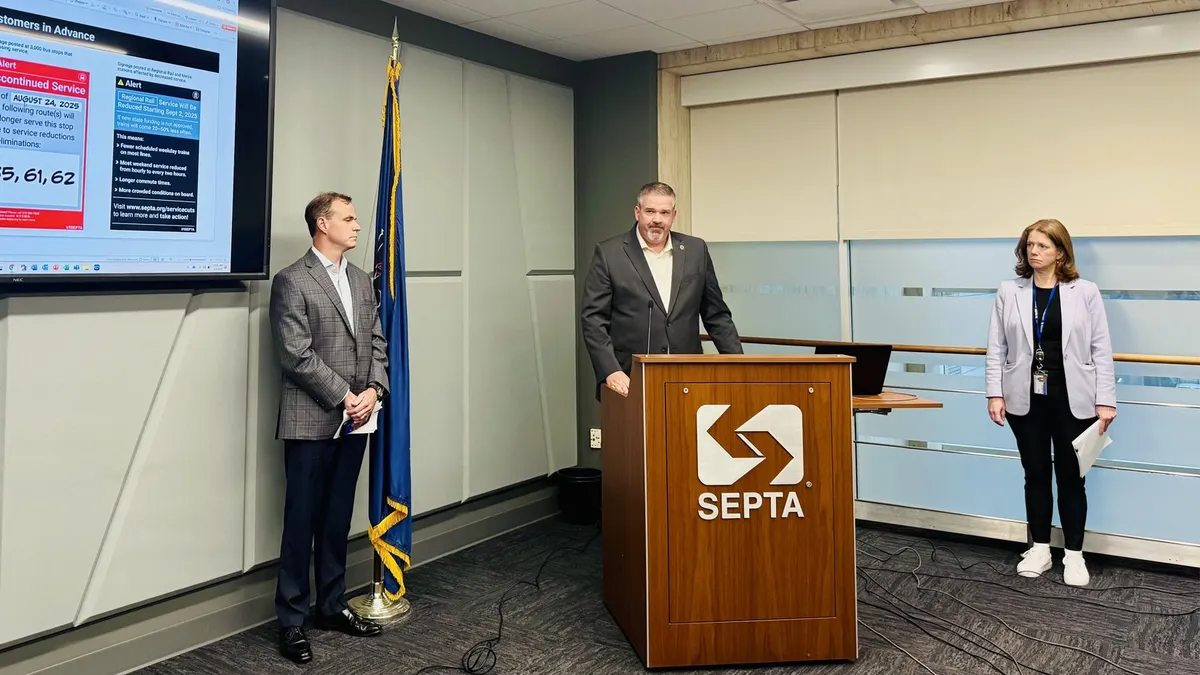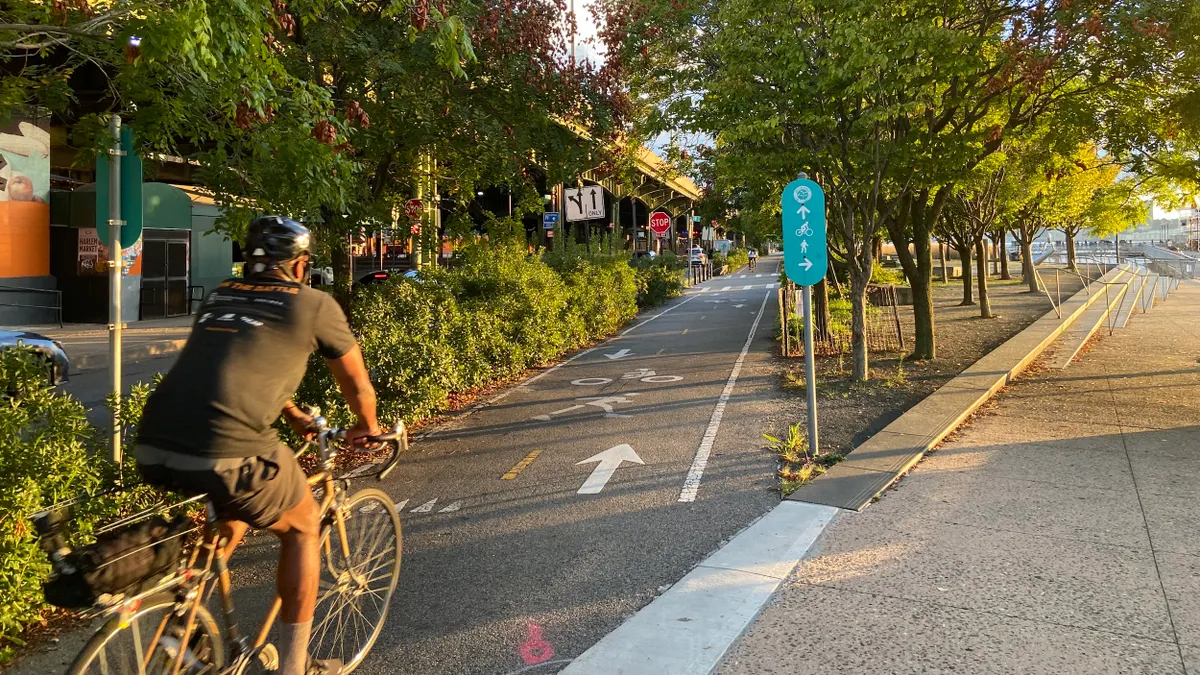It's been a tumultuous two years for the public transit industry. Transit leaders continue to grapple with the effects of the pandemic, including labor shortages and reduced ridership. Despite the adversities, Keolis North America CEO David Scorey believes that the pandemic created a "positive disruptor" for the transit industry.
A division of the Paris-based Keolis Group, Keolis North America, operates regional rail, light rail, bus and paratransit systems under contract with multiple transit agencies in the U.S. and Canada, including the Massachusetts Bay Transportation Authority, Virginia Railway Express and Quebec City's Orléans Express.
Scorey, who was named president and CEO for Keolis North America in 2021, sees a "growing enthusiasm" for public transit in North America, especially among the younger generation. During his 30-year transportation career, starting as a maintainer for diesel trains, he rose to managerial roles with British Rail, Virgin Trains, Alstom and England's Southern Railway. Since 2016, he served as general manager of Keolis Commuter Services in Boston.
Smart Cities Dive spoke with Scorey to get his perspective on the major issues in public transit in North America today, along with his outlook for the coming years.
The following interview has been edited for length and clarity.
SMART CITIES DIVE: From your perspective in working with transit agencies across North America, how would you describe the mood now among transit officials?
DAVID SCOREY: With the funding that's now come from the federal government, particularly in the United States, clients are generally feeling much more bullish about the future, about the relevance of public transportation in the – I hate using the phrase – "new normal," but in whatever emerges post-pandemic. And they are excited at the opportunities for energy transition, for evolving service models, and for regrowing ridership – but not necessarily the same ridership that we had pre-pandemic. There will be a demand, but it won't be the demand that we historically have had. Therefore, we need to adapt our service models to cater to that demand and even to create that demand to an extent.
What differences are you seeing among the various cities where you operate?
Geographically, we are seeing some differences in ridership recovery. So in Las Vegas, for example, we're pretty much back to pre-pandemic levels of ridership. We're connected to what we're seeing elsewhere in the world as well. We've got operations in 16 countries and everybody seems to be in just about the same stage at the moment. Omicron has been a setback and it's created something of a further depression in ridership but hopefully, we'll be back on that positive trend again.
How is Keolis helping its clients navigate these changes?
We've got some proprietary tools. One that we call Keolis Evolve which helps us understand the journeys people are making today, whatever the mode of transportation. It's a means of identifying travel patterns and it uses cell phone technology. Using Evolve we're better able to look at the demand that's there today, even the demand that's not on services we're operating, and work with our clients to adapt the service to better suit demand. So that's down to the level of how you would better enable the first-last mile journey, for example, and then how you can redesign your bus network to operate it more efficiently and better serve the demand that's there.
One of the big issues in transportation now is a shortage of workers. What are you seeing and how is Keolis dealing with it?
In pretty much every part of the working environment people are struggling to get labor, and we're no different. We've done some of the obvious things like looking at incentives to join, upping and evolving our recruitment practices to make it easier for people to apply, but we're not alone in doing those things.
Where we're really looking to differentiate is about the employee experience and doing all we can to ensure our employees feel valued in the organization – that they are well-led, that we are empathetic to their concerns and the challenges they face in the environment that we're all facing today.
How can we construct the most attractive work schedules for people? How can we involve employees and unions in designing those work schedules? How can we make sure that the employee knows who their manager is and that manager is there to support them when they need help, when they need advice, when they need some mentorship?
Retention and employee satisfaction are every bit if not more important [than recruiting]. So career pathing, figuring out how best we can continue to upscale employees and enable them to have a career in transportation. I've experienced that myself. My own career progression was enabled by the industry and the environment that I was in and we need to provide that opportunity for all employees in this organization.
Transit equity is another issue that many communities are struggling with. How is Keolis working to improve equity in the communities where you operate?
We have a number of partnerships with communities. Here in Boston, we have strong coalitions with the Fairmount community so that we hear their voice loud and clear in everything that we're doing. It's one of the communities of color and we're working actively with them to address their concerns.
We're replicating that kind of approach across all of our operations and building up those local relationships with our general managers, with elected officials and with representatives of communities.
What is your outlook for transit in the coming years?
I see a growing enthusiasm in North America over the relevance of public transit. The way that people view transit is changing as well. Particularly the younger generation doesn't view it as a second choice, whereas for many years the automobile has been the first choice for everybody and transit has been something of an afterthought. I think that perspective is changing now.
I hope that when we look back in 10 years' time that we see this pandemic – it's been hugely disruptive, it's been hugely stressful and it's tragic in many ways – but maybe it's something that created as a byproduct a real kind of positive disruptor in the transit industry, and created opportunities for us to accelerate through some of the doubts about what transit should be. And so hopefully there will be some positives that come out to what we're going through right now.



